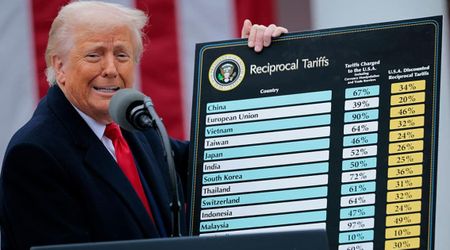Remote Workers In Some US States May Face Income Tax Troubles; Here's What They Need To Know

What Kind of Issues?

The COVID pandemic made working from home/working from anywhere a reality for people across the globe. However, those in the U.S. who continue to work from home or while moving from state to state could invite themselves to a possible tax headache. People living and working in different states may have to file more than one state income tax return. However, every state has different rules, so here’s all you need to know about income tax for remote workers.
Why is Income Tax so Complicated for Remote Workers?
While not all jobs can be done remotely, some people have the option to work from home all of the time. According to a McKinsey & Company survey, there are about 92 million people in the US who can, at times, skip their commute to other cities or states for work. In this case, ideally, they don’t need to pay taxes in those jurisdictions.

However, communities and states need tax dollars to function. Thus, states and cities with income taxes impose rules for taxation on remote work. This leads to confusion amongst remote workers with many having to file income taxes twice in the two different states. This is where reciprocal tax agreements come in to save the day for them.
What are Reciprocal Tax Agreements?
States have reciprocal tax agreements with each other to simplify taxation. For instance, if an employee’s home state has a reciprocal tax agreement with their work state, the latter can’t withhold taxes from their paycheck. Thus, employees won’t be required to file a return for both states.
What You Need to Know about Reciprocal Tax Agreements https://t.co/AMr5dPhVuO pic.twitter.com/UDeq88cHeU
— Online Payroll Services (@Payroll2018) September 25, 2018
Workers in Which States Shouldn’t Worry About Income Tax Complications?
There are reciprocal agreements across 16 states and there are 30 bilateral agreements, according to the Tax Foundation.
Further, some states don’t have an income tax at all. These states don’t require professionals to file a state income tax return. These states are Alaska, Florida, Nevada, New Hampshire, South Dakota, Tennessee, Texas, Wyoming, and Washington.
Who may be Taxed Twice?
In case there is no tax reciprocal agreement between the two states, some states have a “convenience of the employer rule”. Under this, people who are working in a different state for their convenience and not because of the employer’s requirement will owe taxes in the work state and the home state as well unless one of them is a no-income tax state. Thus, these workers will get taxed twice on the same income.
The remote worker's survival guide: Here's how to thrive in a hybrid world https://t.co/kCDZFYKtsI
— Bizwomen (@bizwomen) January 18, 2024
However, there is some relief provided by some states. A handful of states offer a credit that can help offset part or all the taxes that employees pay in their work state. For example, New Jersey offers a tax credit to offset state taxes its residents paid to New York.
But rules in each state differ slightly, and as per a USA Today report, these are the states to watch out for Connecticut, Delaware, Nebraska, New York, and Pennsylvania. Some states like Massachusetts require professionals to file income tax returns only if their gross income exceeds a certain threshold.
What’s next for Remote Workers?
While some remote workers find respite in the above-mentioned rules, for the others who are paying taxes twice, Congress could do something about it. For instance, the Multi-State Worker Tax Fairness Act was introduced three years ago, by a Connecticut Democrat which proposed a limit on which states can tax the income of non-resident remote workers.




















